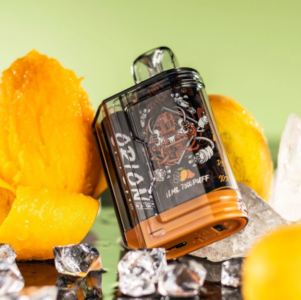An expert suggests annual student testing as a strategy to combat youth vaping in Singapore.
SINGAPORE: Despite being illegal, vaping is growing in prevalence in Singapore, with users starting as young as primary school age. In a concerning trend, the number of people caught vaping has surged significantly, prompting calls for more stringent measures to curb its rise.
In December 2023, a grassroots initiative in MacPherson offered shopping vouchers to youth who surrendered their vapes. Among the participants was a 12-year-old child.
By the second quarter of 2024, health authorities reported nearly 700 students were referred and fined for possessing or using vapes. Overall, over 2,500 individuals were nabbed for vaping, marking a 30% increase from the previous quarter.
Why is Vaping So Hard to Stamp Out?
Singapore banned vaping in 2018, but enforcement has struggled to keep up. Between 2022 and 2023, the number of offenders rose by 60%, with a quarter of underage offenders being repeat violators.
Professor Teo Yik-Ying of the National University of Singapore highlights the growing concern: “Globally, vaping appears to be an even larger issue than traditional cigarettes ever were.”
Internationally, 34 countries, including Singapore and several Southeast Asian nations, ban vaping. However, neighboring Malaysia’s decision to legalize and tax nicotine liquids and gels in 2023 has created challenges for Singapore’s border control.
The Dangers of Vaping
Vaping devices often contain harmful substances like formaldehyde, benzene, and heavy metals, which pose severe risks to the lungs, heart, and immune system. Dr. Puah Ser Hon from Tan Tock Seng Hospital cites cases of lung scarring and inflammation, with some patients requiring intensive care.
Although some countries regulate vaping to help cigarette smokers quit, such approaches can lead to nicotine addiction in new forms, according to Dr. Puah.
Discouraging Vaping: What Can Be Done?
Raising awareness is critical, particularly among youth. Assistant Professor Yvette van der Eijk emphasizes the need to educate students about biased research funded by the vaping industry.
Schools currently conduct targeted enforcement using test kits, but Professor Teo suggests annual cohort-wide testing to discourage vaping. Drawing inspiration from the U.S., where a disciplinary programme for vaping offenders coincided with a 4% drop in high school vape usage, Prof. Teo urges innovative strategies tailored to vaping’s unique challenges.
Are Penalties Harsh Enough?
In Singapore, individuals caught vaping face fines of up to S$2,000, while sellers and distributors risk S$10,000 fines or six months in jail. Repeat offenders face doubled penalties.
Critics argue that the punishments do not outweigh the potential profits for smugglers, leading to ongoing illicit activity. In June 2024, one of Singapore’s largest vape distribution networks was dismantled, with S$6 million worth of products seized.
Comparatively, penalties in countries like Australia are much stricter, with fines reaching up to AU$2.2 million and prison terms of up to seven years for illegal vape sales.
Singapore is reviewing its penalties and ramping up border enforcement, online monitoring, and takedown efforts for vape-related content. Authorities aim to send a stronger deterrent message while addressing the social and economic factors fueling vaping’s rise.
A Multi-Faceted Approach Needed
Experts agree that curbing vaping requires both stricter enforcement and broader public education. As Singapore faces this growing challenge, policymakers are tasked with crafting innovative solutions to protect public health while adapting to the evolving dynamics of nicotine consumption.








